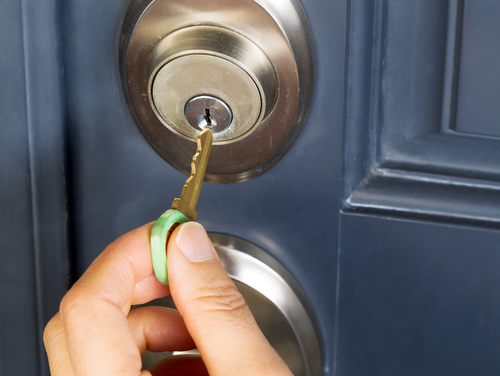Proper care and maintenance of your door locks can prevent lock replacement further down the road. That said, checking on door locks isn’t always at the top of everyone’s to-do list, and lock problems can slip through the cracks and build up over time.
Call a professional locksmith or replace the lockset completely for serious lock issues. However, smaller problems can be caught and repaired by the homeowner at little cost.
Here are three of the most common lock problems and how to fix them.
1. The door key doesn’t work.
First, make sure that you are using the correct key for the door. Once you do get the door open, try the key again. If the key works quickly and efficiently, then the issue is a deadbolt that is not properly interacting with the strike plate. If the key does not work easily, spray a small amount of graphite onto the key and into the lock. Try the key several times in the lock until it works.
What if the key turns but doesn’t unlock the lock? In this situation, take the lock apart to check that the tang or cam is engaging correctly with the bolt. Make sure to replace any broken parts before reassembling the lock.
What if the key is new? A new key that won’t slide easily into the lock may have some rough edges that should be filed down. To locate the rough spots, hold the key over a candle until it blackens with soot. Turn the key gently in the lock and remove it. The soot will be removed from the rough areas, so file those spots down, and your key should work fine.
2. The door lock works slowly.
Exterior and interior locks can get dirty with use and exposure to the elements over time, but there are some simple remedies to try before you purchase a replacement lock.
Start by inserting graphite into the keyhole. Use the lock mechanism repeatedly to work the graphite in.
Gummy, dirt deposits can also be removed with lock de-icers. If these methods don’t work, disassemble the lock and examine it to see if anything is broken or jammed within it. It’s possible that you can replace the part without having to buy a whole new lockset.
3. The key is broken off in the lock.
Using a set of pliers, attempt to grip the key and pull it straight out. If you are unable to access the key, use a cut coping saw blade to remove it. Point the blade’s teeth outward, insert the saw blade into the keyway, and pull the key part out.
In a worst-case scenario, remove the cylinder. Insert a stiff, hard wire at the back of the cylinder, then push the key out. You can also bring the cylinder to a locksmith if more assistance is necessary.
Always call a professional locksmith for serious lock concerns, but for smaller, more common lock problems, you can try to do it yourself first.

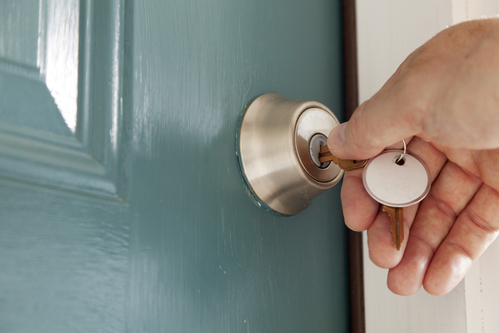
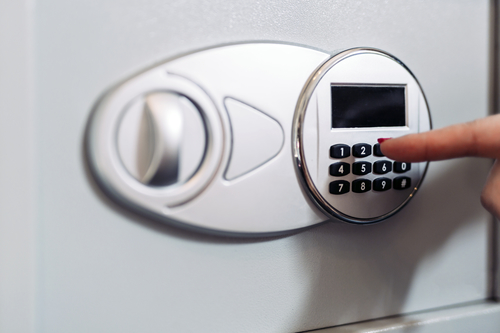
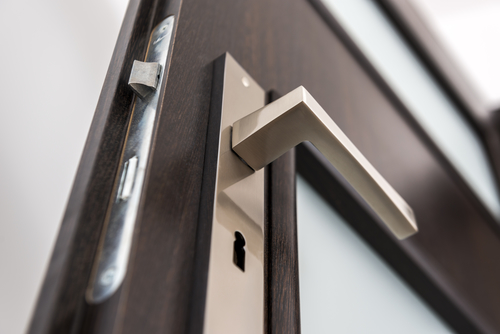 The electric strike lock may not be a colorful component in a locking system, but it is one of the most important. This type of lock is not only cost-effective, but also a better alternative than electrified lock mechanisms in some circumstances.
The electric strike lock may not be a colorful component in a locking system, but it is one of the most important. This type of lock is not only cost-effective, but also a better alternative than electrified lock mechanisms in some circumstances.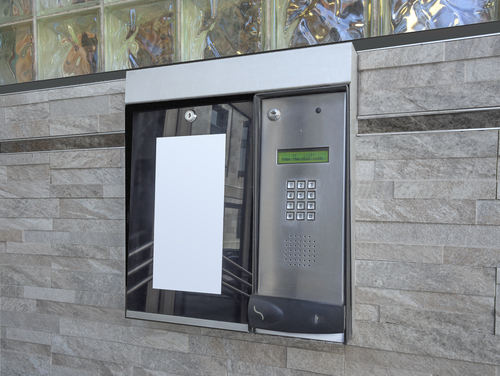 Whether you are looking to protect a real estate investment or your residential property, security of your facility and property is always a priority, and rightly so. Although there are many inexpensive or outdated entry systems available for commercial and residential purposes, purchasing the right telephone entry system the first time can give you peace of mind and secure your assets.
Whether you are looking to protect a real estate investment or your residential property, security of your facility and property is always a priority, and rightly so. Although there are many inexpensive or outdated entry systems available for commercial and residential purposes, purchasing the right telephone entry system the first time can give you peace of mind and secure your assets.